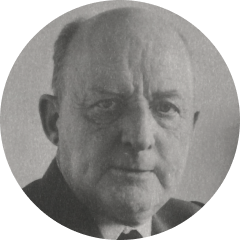Reinhold Niebuhr
(1892–1971)
Reinhold Niebuhr (1892–1971): influential theologian, ethicist, philosopher, and polemical commentator on politics and public affairs; Professor of Practical Theology at Union Theological Seminary, New York, 1928–60. From 1915 until 1928 he worked (like his father) as a minister in the German Evangelical Synod, with socialist and pacifist sympathies; and in the 1930s he helped to develop the Fellowship of Socialist Christians and was active in the Socialist Party. From 1938, however, he rejected (as he declared) ‘liberal theological ideals and ideas’, and became a leader of the neo-orthodox movement in theology; in 1941 co-founded the Union for Democratic Action, being active in support of American action in the Second World War, and was the group’s first president (until 1947). Works include Moral Man and Immoral Society (1932), The Nature and Destiny of Man (1941–3), The Irony of American History (1952), The Self and the Dramas of History (1955), and The Structures of Nations and Empires (1959). Awarded Presidential Medal of Freedom, 1964.
